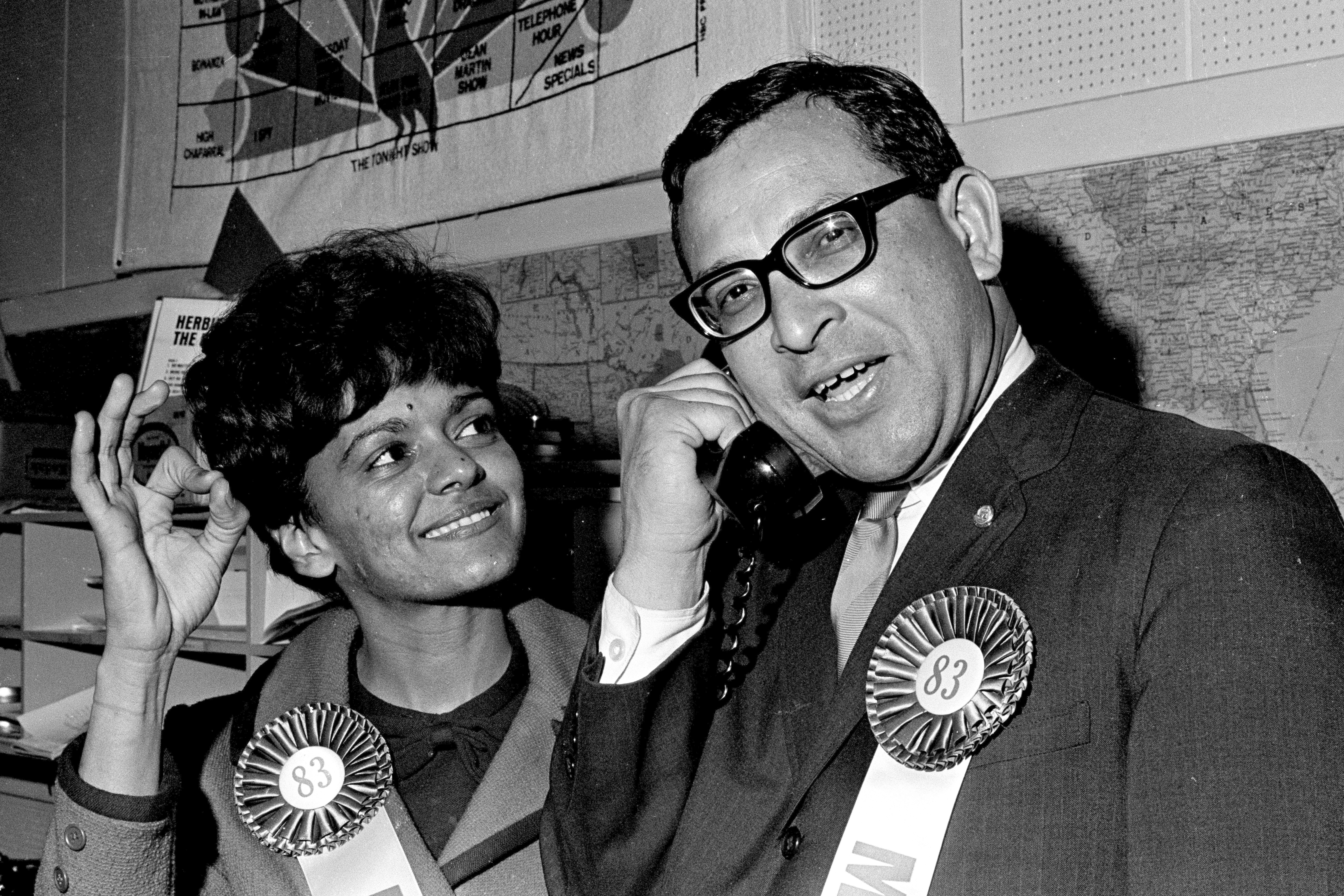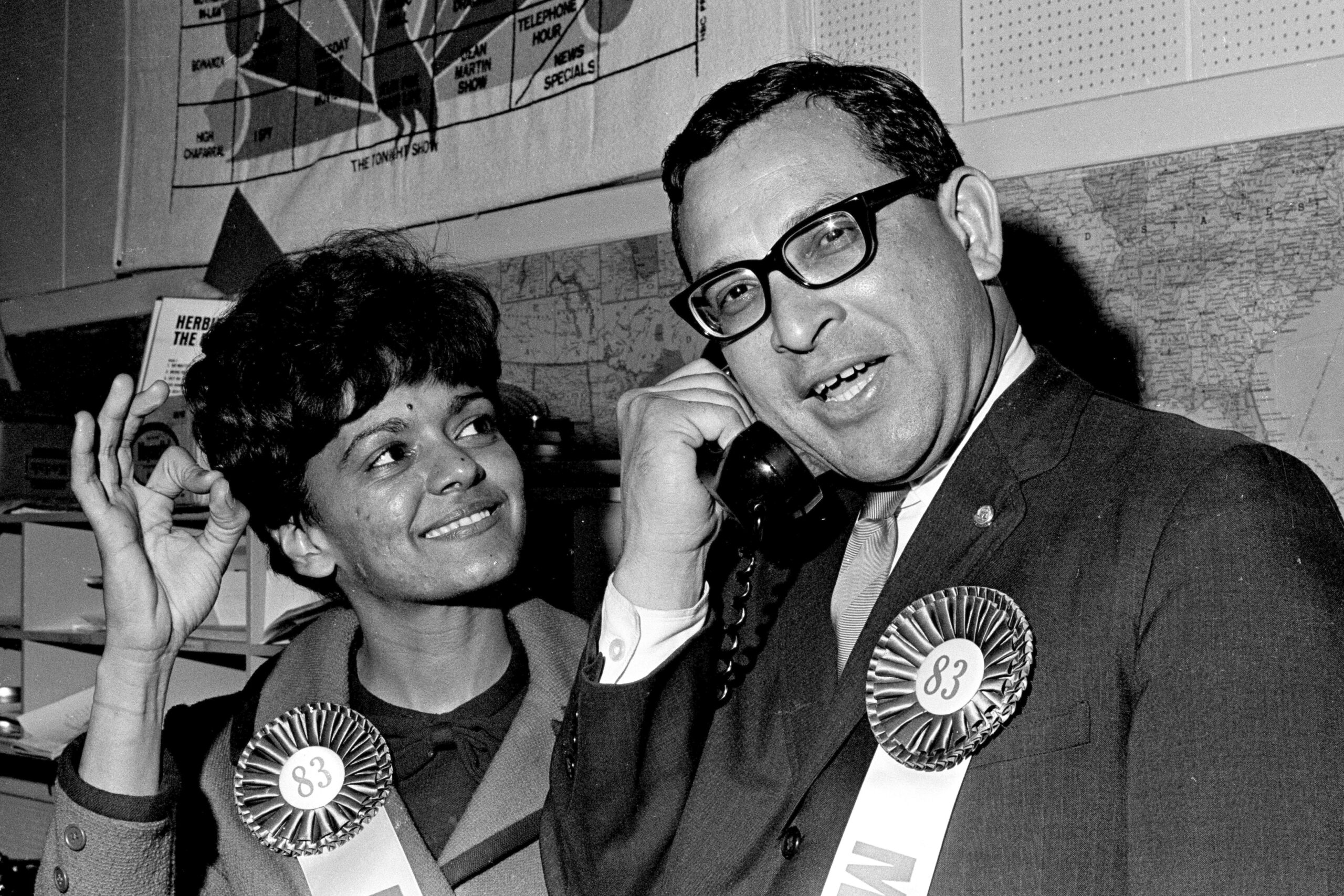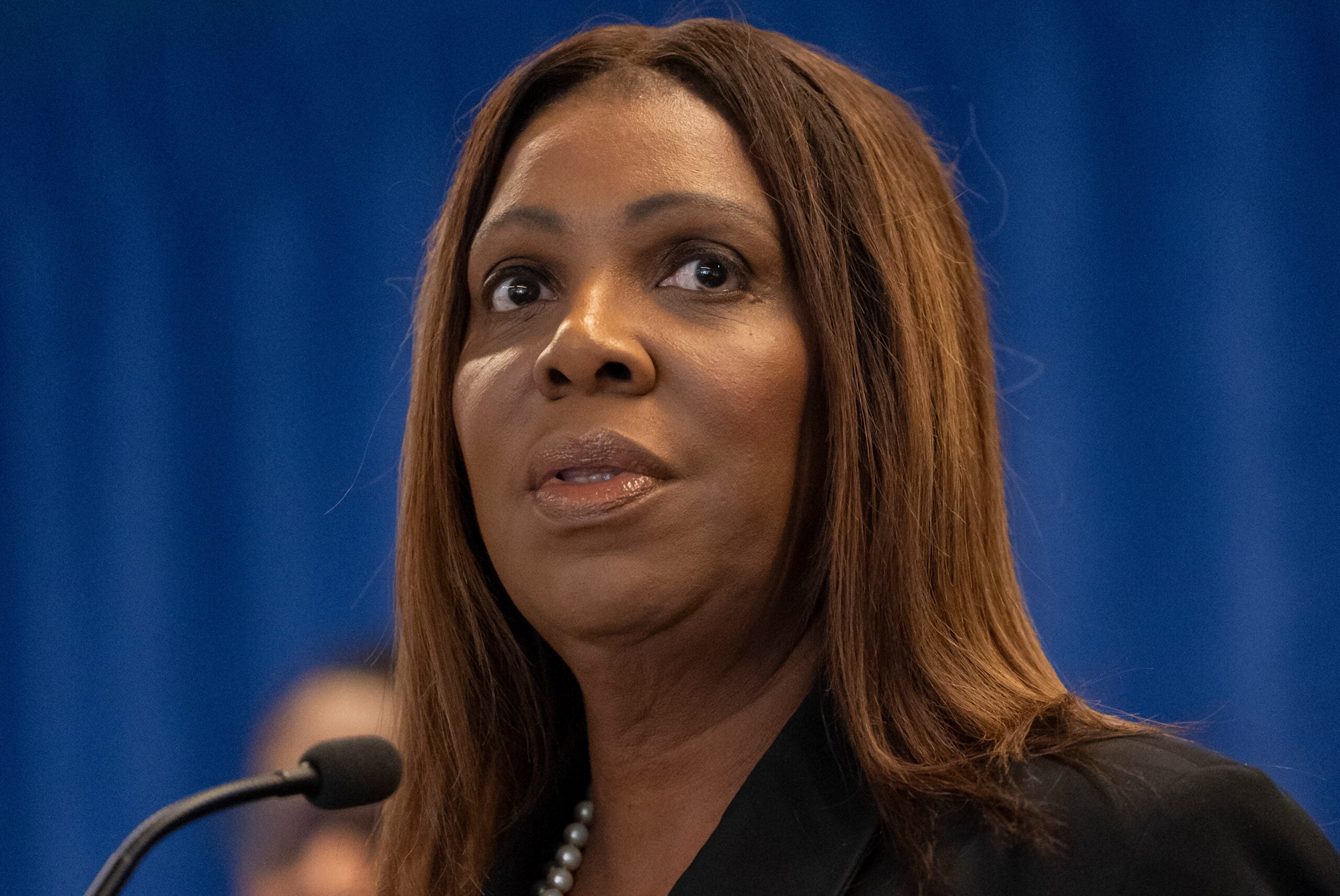
NEW ORLEANS (AP) — Sybil Haydel Morial, a civil rights activist, widow of New Orleans’ first Black mayor, Ernest “Dutch” Morial, and mother to former Mayor, Marc Morial, has died at age 91.
Her family announced her death Wednesday in a statement issued by the National Urban League, which Marc Morial serves as president and CEO. Details on the time and cause of death were not released.
“She confronted the hard realities of Jim Crow with unwavering courage and faith, which she instilled not only in her own children but in every life she touched,” the statement said.
Morial was born Nov. 26, 1932, and raised by her physician father and schoolteacher mother in a deeply segregated New Orleans. She later met the Rev. Martin Luther King Jr. in Boston and returned home inspired to do her part in the civil rights movement.
In her 2015 memoir, “Witness to Change: From Jim Crow to Empowerment,” Morial described how she and her friends, including the future mayor of Atlanta, Andrew Young, were chased out of New Orleans’ City Park by a police officer because of their skin color.
She attended Xavier University, one of the city’s historically Black higher learning institutions, before transferring to Boston University, where King was pursuing a divinity degree and guest-preaching at churches.
Later, while traveling home, she and other Black passengers had to move to the baggage car when the train crossed the Mason-Dixon line.
“The barricade that kept us out of schools, jobs, restaurants, hotels, and even restrooms would have to be dismantled brick by brick, law by law,” she wrote.
She was in Boston in 1954, the year the Supreme Court issued a landmark decision overturning racial segregation in schools.
“Those of us from the South … We wanted to go back home because we wanted to be a part of change. We knew change was coming,” she said during a 2018 interview with Louisiana Public Broadcasting.
That summer, she tried to integrate New Orleans’ other leading universities — Tulane and Loyola. She signed up for summer sessions at both and attended classes for nearly a week at Tulane while they waited for her transcript to arrive from Boston, but was eventually told that she could not enroll because of her race.
At Loyola, she was told that “according to state law, Negroes cannot attend the same school as whites.”
Her return home in 1954 also brought her face-to-face with the man she would marry: Ernest Nathan “Dutch” Morial. The two fell into an intense discussion about the court’s recent desegregation decision during a summer vacation book club.
Recommended Stories
They wed the next year and she supported her husband thereafter, raising five children and teaching school while he ran for the state Legislature in 1968 and for mayor in 1978.
She was often the one who had to shield their children from the resulting racist threats, racing for the phone to answer it first.
During Morial’s first mayoral term, National Guard troops were stationed at their house to protect the family during the 1979 police strike that led to the cancellation of Mardi Gras parades.
Sybil Morial also became a city power player in her own right.
She founded the Louisiana League of Good Government, which helped Black people register to vote at a time when they still had to pass tests such as memorizing the Preamble to the Constitution. She also was a plaintiff in a lawsuit challenging a Louisiana law that barred public school teachers from being involved in groups fighting segregation, according to the LSU Women’s Center.
She held various administrative positions over 28 years at Xavier and served on numerous boards and advisory committees across the city.
“Few women have played such an outsized role in the recent history of New Orleans,” former Mayor Mitch Landrieu said in a social media post. Current Mayor LaToya Cantrell called Morial “a New Orleans treasure and trailblazer” and said the city’s flag would fly at half-staff in her honor.
As part of the 1984 World’s Fair in New Orleans, she championed the building of a pavilion dedicated to African American contributions and experiences in American history, and in 1987 she was the executive producer of “A House Divided,” a documentary about desegregation in New Orleans.
After her husband died unexpectedly in 1989 at age 60, Morial wrote that she briefly flirted with the idea of running for mayor in 1994. Instead, her son Marc, then 35, ran and won, launching a second generation of Morial mayors.
Funeral plans have not been announced. Sybil Morial is survived by her five children, seven grandchildren and a great-granddaughter.





